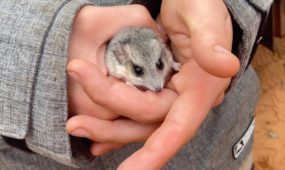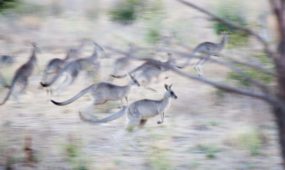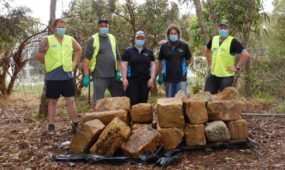Conservationist returns western quoll to Flinders Ranges after 100 year absence
Environment
DR David Peacock of Biosecurity SA has overseen the release of 40 western quolls in to their former habitat of the Flinders Ranges in a $1.7 million five-year reintroduction program.

Sign up to receive notifications about new stories in this category.
Thank you for subscribing to story notifications.
The marsupial was once widespread in the area, but predators and a loss of habitat saw them disappear. Recent fox baiting programs have opened the way for their reintroduction to the Wilpena Pound area.
Until now, the only population left in Australia was located in south-western Western Australia under a government-run recovery program.
Dr Peacock guesses they haven’t been found in South Australia since the 1880s. The quolls will be let go in a staggered release, with radio-tagged females going first.
“To see that first female come out and run off and go along that log and disappear into the dark and try to find a new home, that’s really special. That’s something that will stay with me forever,” he said.
The local Adnyamathanha people conducted a blessing ceremony for the release.
“My grandfather saw him. My dad didn’t. But I’m proud to say that I’ve now seen him back on country,” said local Vince Coulthard said before the release.
There are still threats to be faced with feral cats likely to compete with and hunt the quolls, but regional managers are confident the quolls will find their footing before long.
Read the full story by Kerry Staight at the ABC.
Watch the reintroduction on ABC’S Landline.
Photo courtesy of S J Bennett.
Jump to next article



